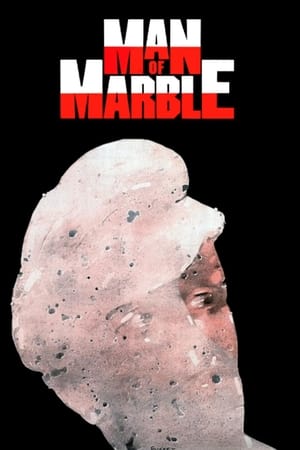The film depicts Agneska, a recent film graduate, ambitious and determined to make a biographical documentary featuring Burkut, a model brick worker in the 1950s, as his graduation thesis. In order to find out how the protagonist became a model worker, the tortuous legendary life of being convicted and eventually restored, Agneska conducted a large number of investigations and data collection, and interviewed some key figures at the time of history. Finally she found Burkett's son and learned that the hero, once known as the Marble Man, was dead. Burkut's name is not even left on the tombstone of the cemetery. Burkut was killed during the worker unrest at the Gdansk shipyard. People can no longer find any trace of him. From then on, the marble man became a ghost. " The theme of the film is quite bold, and the ending account of the protagonist's fate has been served by scissors. The aim is to expose the destruction of human nature and the deception of innocent people by a system that suppresses freedom through the myth of model workers made by a national propaganda machine, showing a cold reality in the style of a documentary reminiscent of the 1970s. This film led to Wajda being banned from filming for many years.
 7.9
7.9